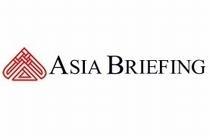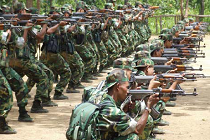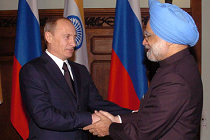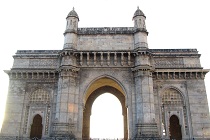Why India matters
It is time to dust off those preconceived notions about India as dirty and poverty stricken. Investing in India makes a sound Asia-strategic sense when coupled with China.
 Courtesy: Asia Briefing
Courtesy: Asia Briefing
It is time to dust off those preconceived notions about India as dirty and poverty stricken. Investing in India makes a sound Asia-strategic sense when coupled with China.
India and Japan have designed their collaborations over the years to be a win-win for both sides. Now, they are willing to collaborate on long-term initiatives, based on intrinsic factors of inter-dependent competencies – rather than on the defence of an extrinsic threat of a common enemy.
 Courtesy: Newsdesk
Courtesy: Newsdesk
Alongside the 2012 BRICS Summit in Delhi, this special publication is a collection of articles that addresses important issues of the global agenda, the priorities of BRICS, the policies and competitive advantages of the participants, as well as BRICS institutionalization.
 Courtesy: nazeah/Wikimediacommons - Ramesh Lalwani/Flickr
Courtesy: nazeah/Wikimediacommons - Ramesh Lalwani/Flickr
The year 2011 saw various events - the Arab Spring, anti- corruption protests, Europe's sovereign debt crisis - transform countries and reshape the world order. Gateway House takes a look at what these events mean for India, and presents India's top foreign policy cheers and jeers for the year.
 Courtesy: Manipur Police/WikimediaCommons
Courtesy: Manipur Police/WikimediaCommons
What have economic blockades in India's North East achieved? For one, they choked off the supply chain of an already isolated region. With Myanmar showing signs of warming towards India, New Delhi must establish ties with its eastern neighbour, but first, it needs to fix Manipur’s broken socio-political landscape.
 Courtesy: Michael Trolove/WikimediaCommons
Courtesy: Michael Trolove/WikimediaCommons
Growing instability in the region make the planned Turkmenistan-Afghanistan-Pakistan-India (TAPI) gas pipeline seem more like a burden than a solution to India’s hunt for alternative energy sources. Is it wise for India to move ahead with the $7.6 billion project?

Amidst myriad country groupings that already exist – BRICS, IBSA, APEC, SCO and many others – a new initiative in the Pacific is looking to integrate more powerful countries to form a multilateral free trade agreement – the Trans Pacific Partnership. How important is this towards the reshaping of trade and power?
 Courtesy: UN Photo/Paul Banks
Courtesy: UN Photo/Paul Banks
After the crass misuse of Responsibility to Protect (R2P) in Libya, the broader question is: where is R2P headed? Do the events in Libya herald a more explicit assertion of this doctrine in other parts of the world? And should India rethink its viewpoint towards this ambiguous doctrine?
 Courtesy: PMO
Courtesy: PMO
The India-Russia relationship has seen much progress over the past year - 30 MoU's were signed, two Russian nuclear reactors were set up in India and visa regimes have been eased considerably. But will this be enough to lift the relationship from the benign neglect of the past?
 Courtesy: Xerxes Adrianwalla
Courtesy: Xerxes Adrianwalla
While it is common for monuments of erstwhile rulers to be violently demolished, India has refrained from such actions. After 100 years, what does the Gateway of India mean today? Is it a metaphorical portal for exploring how India and Indians might help to foster new paradigms of power at home and abroad?